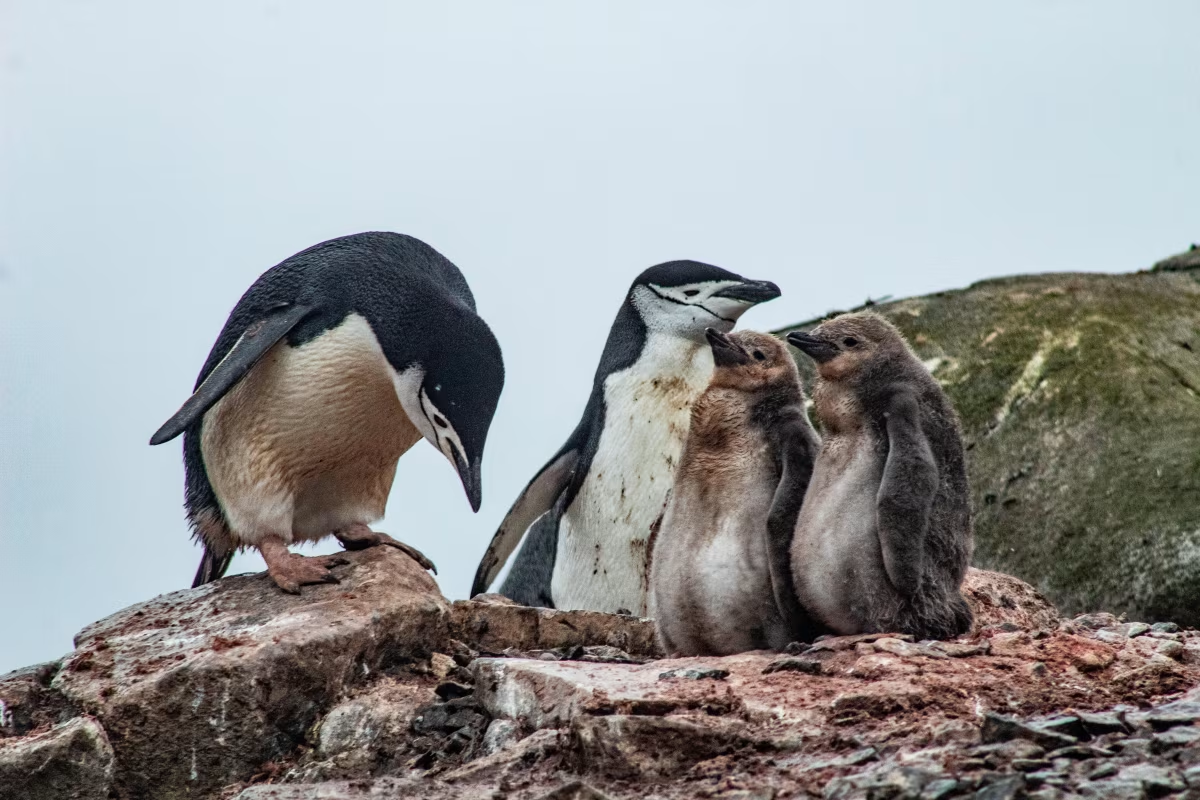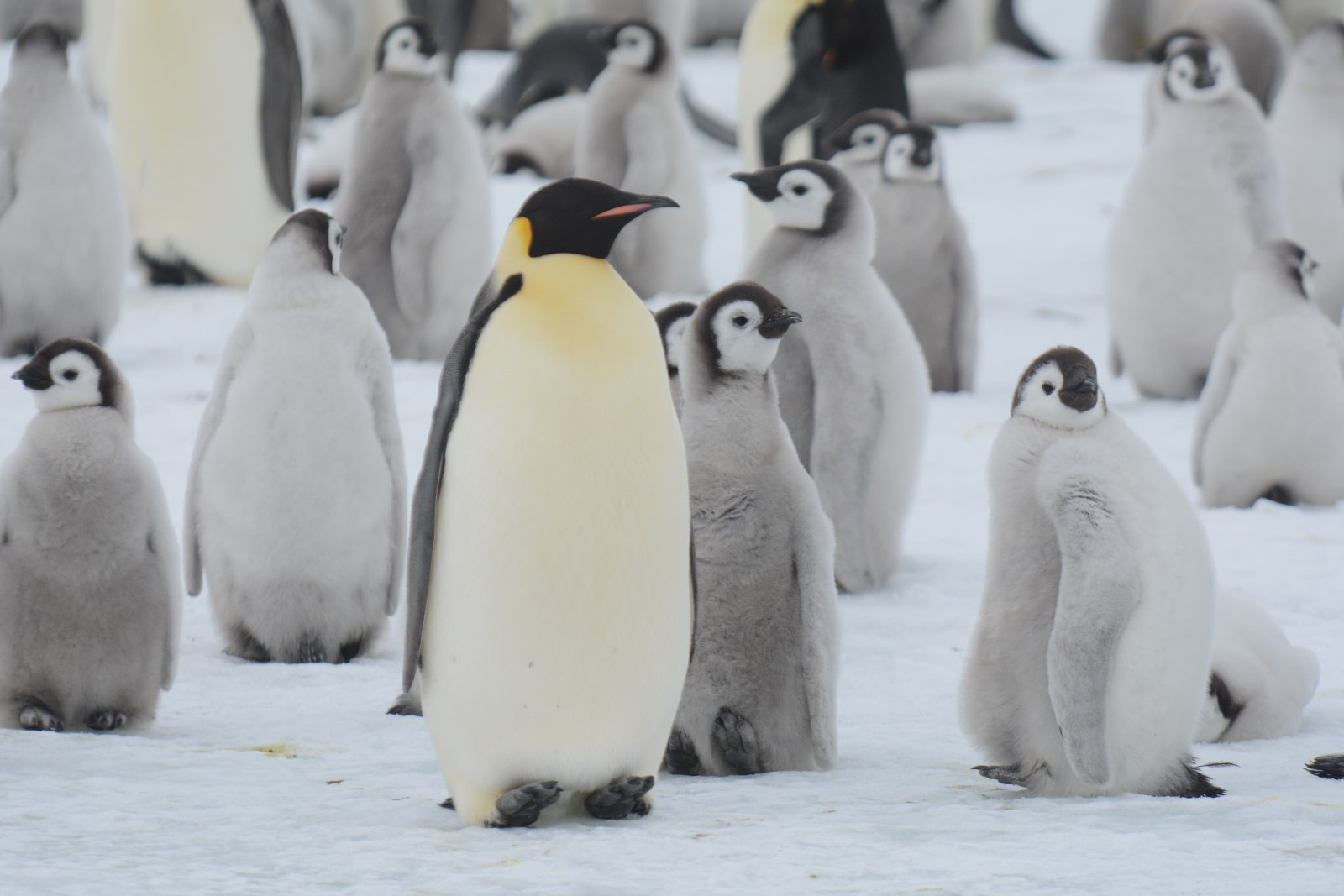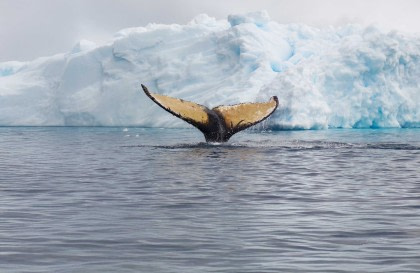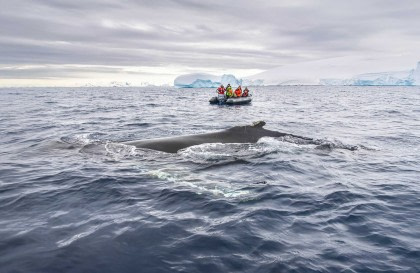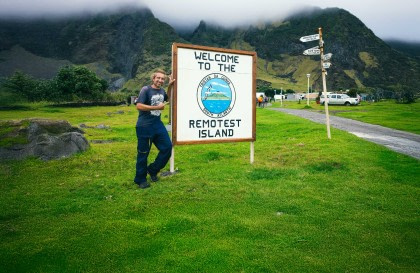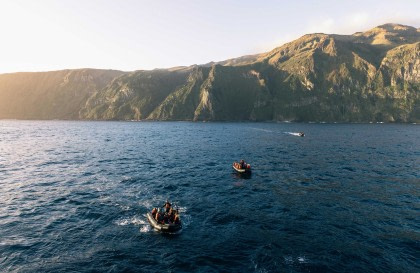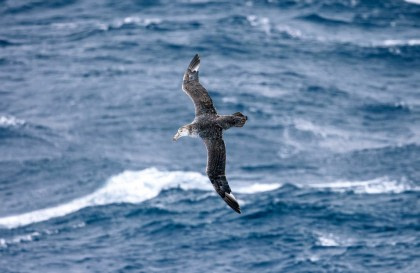12 Tips to Help Keep Birds Safe During an Antarctic Cruise
One of the most wonderful experiences you can have on an Antarctic cruise is investigating the multitudes of penguins in their natural habitat. Naturally, passengers are often concerned about the possibility of disturbing the penguins (and other Antarctic birds), causing an upheaval in their breeding and nesting patterns.
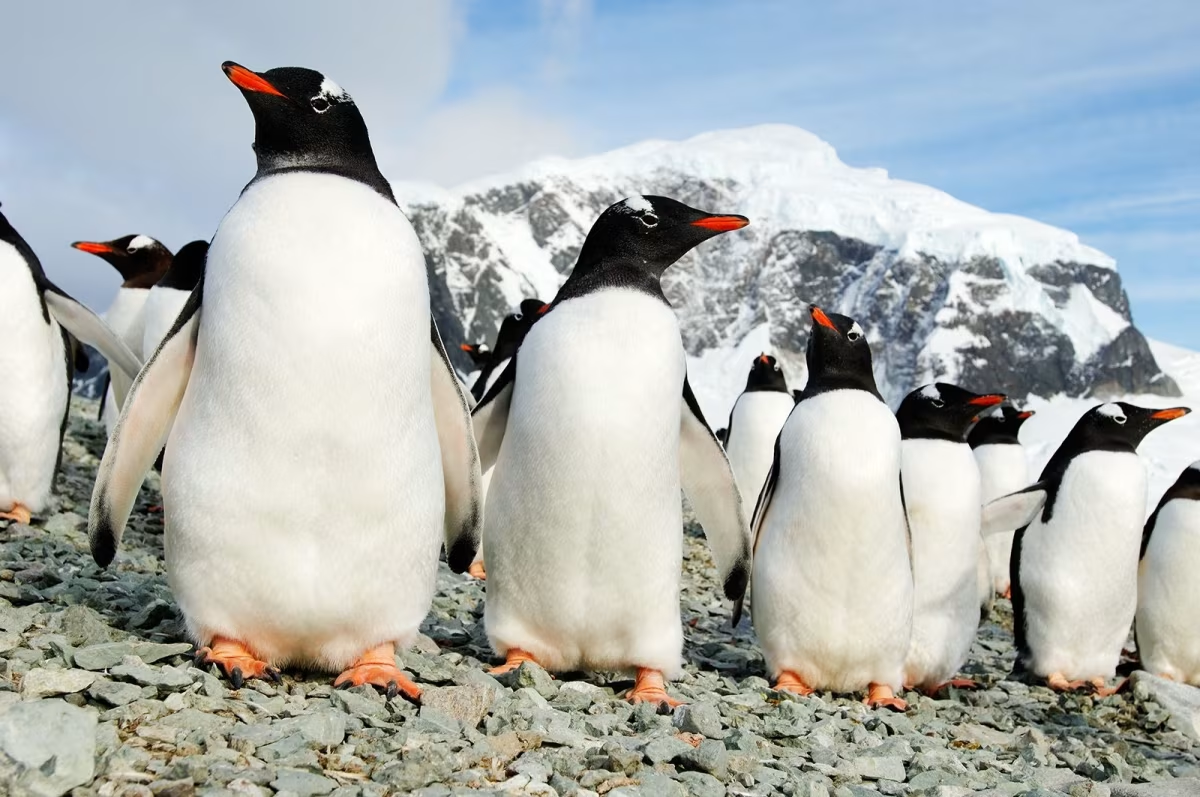
Here are some Antarctic bird conservation tips to keep in mind that will help the local wildlife get on with their routines while still allowing us the joy of seeing them up close and personal.
1. Large numbers in limited places
All Antarctic birds, except the Emperor penguin, must come to snow-free land to nest. Vast numbers of mostly colonial seabirds concentrate in large numbers in limited places. So we have to remember that it is easy to adversely affect lots of birds at once.
2. Landing beaches are for everyone
Penguins (except Emperors) come to land to breed only where they can enter from a beach. This is where scientists also want to build stations. Penguins thus are vulnerable to every kind of human disturbance. In the early days of exploration they suffered greatly from this. They still can, if people forget that landing beaches are for everyone.
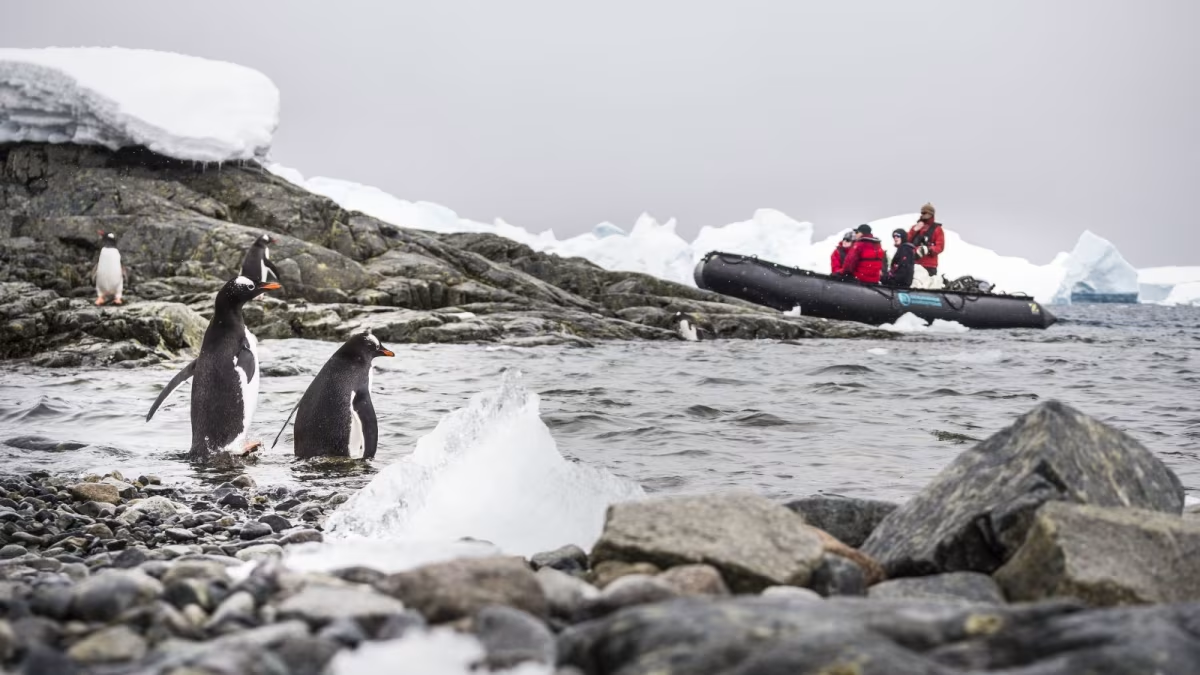
3. A very short summer
The breeding season is generally from late October to early February. That’s less than 4 months for hatching and development. If eggs or young ones are destroyed, there is little time left for second broods (gulls, skuas, and Gentoo penguins lay again if their eggs are lost early in the season). Antarctica’s summer is very short.
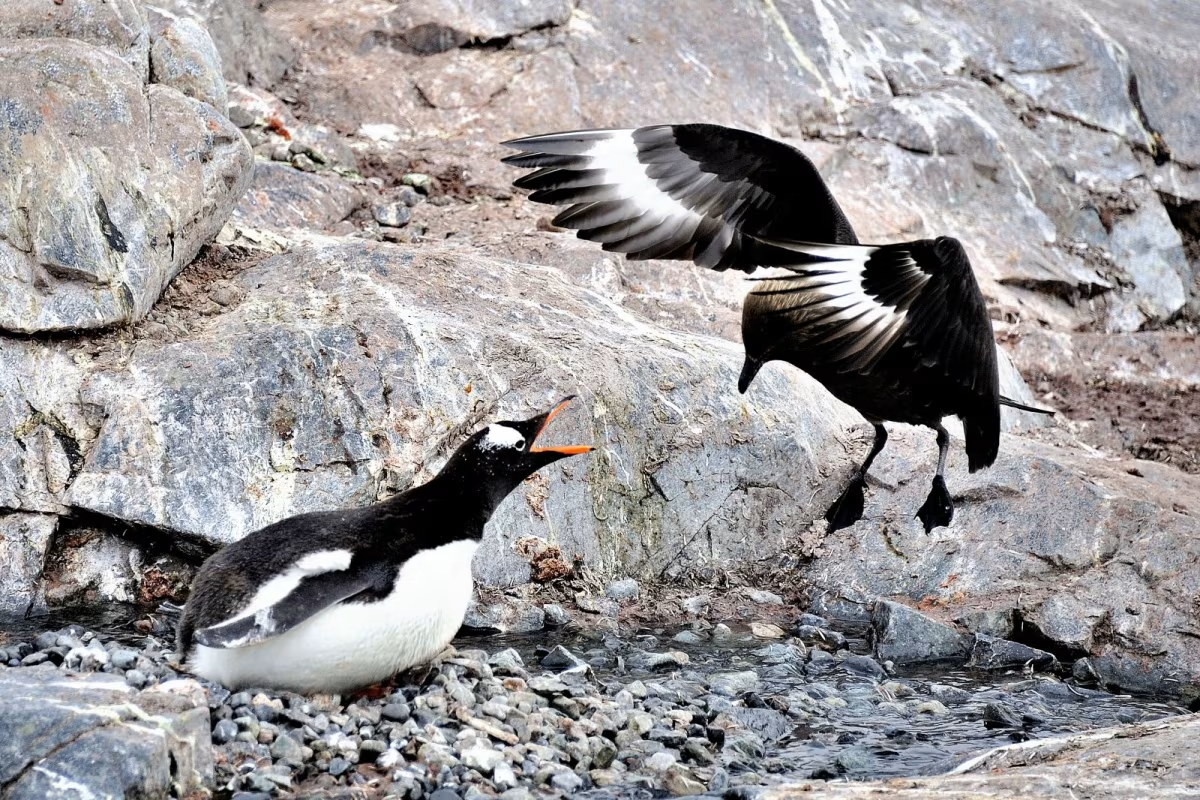
4. Long-lived yet late breeders
Antarctic birds are long-lived. Several wandering albatrosses still breed in South Georgia at more than 35 years old. Skuas probably live to 70. These seabirds take a long time to reach maturity. The average age for first breeding in the Adélie penguin is 5 years; a grey-headed albatross may not breed until 13. Breeding places must remain intact until they return.
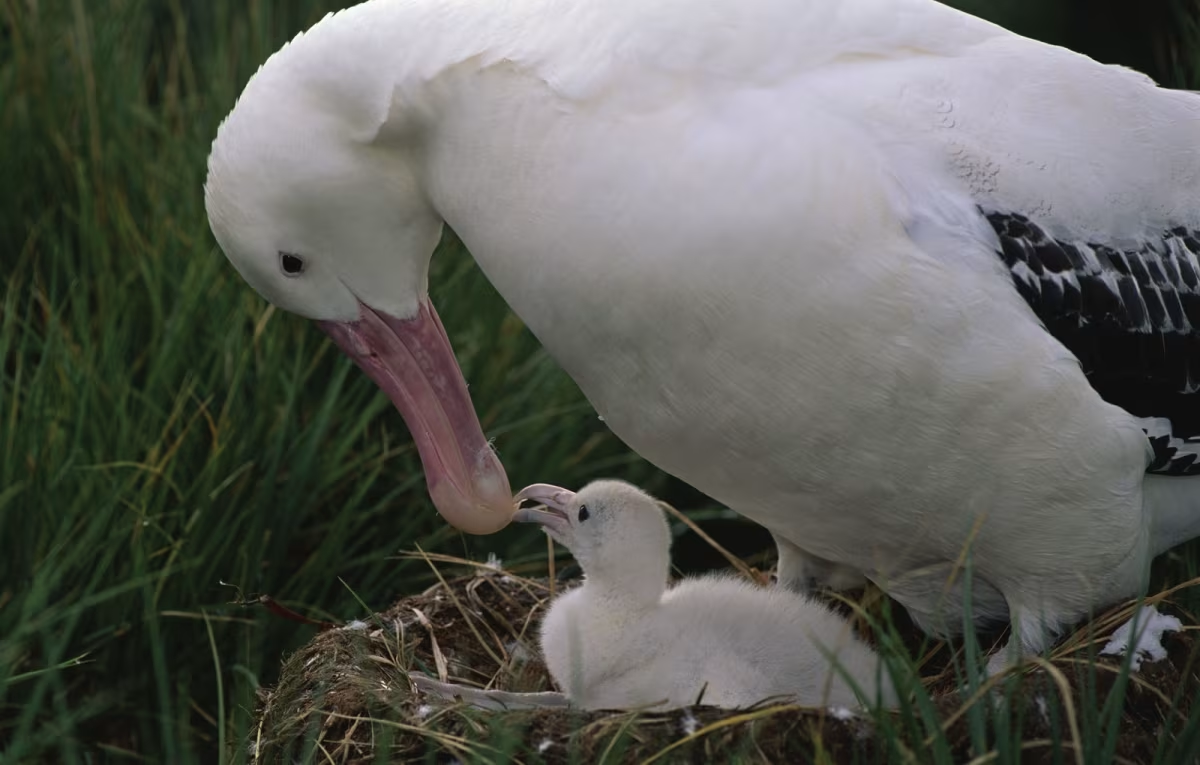
5. Right of way
When penguins are coming and going from landing beaches to feed their young, they use traditional highways where visitors, like the penguins, find the walking easiest. Please keep clear of these penguins’ right of way.
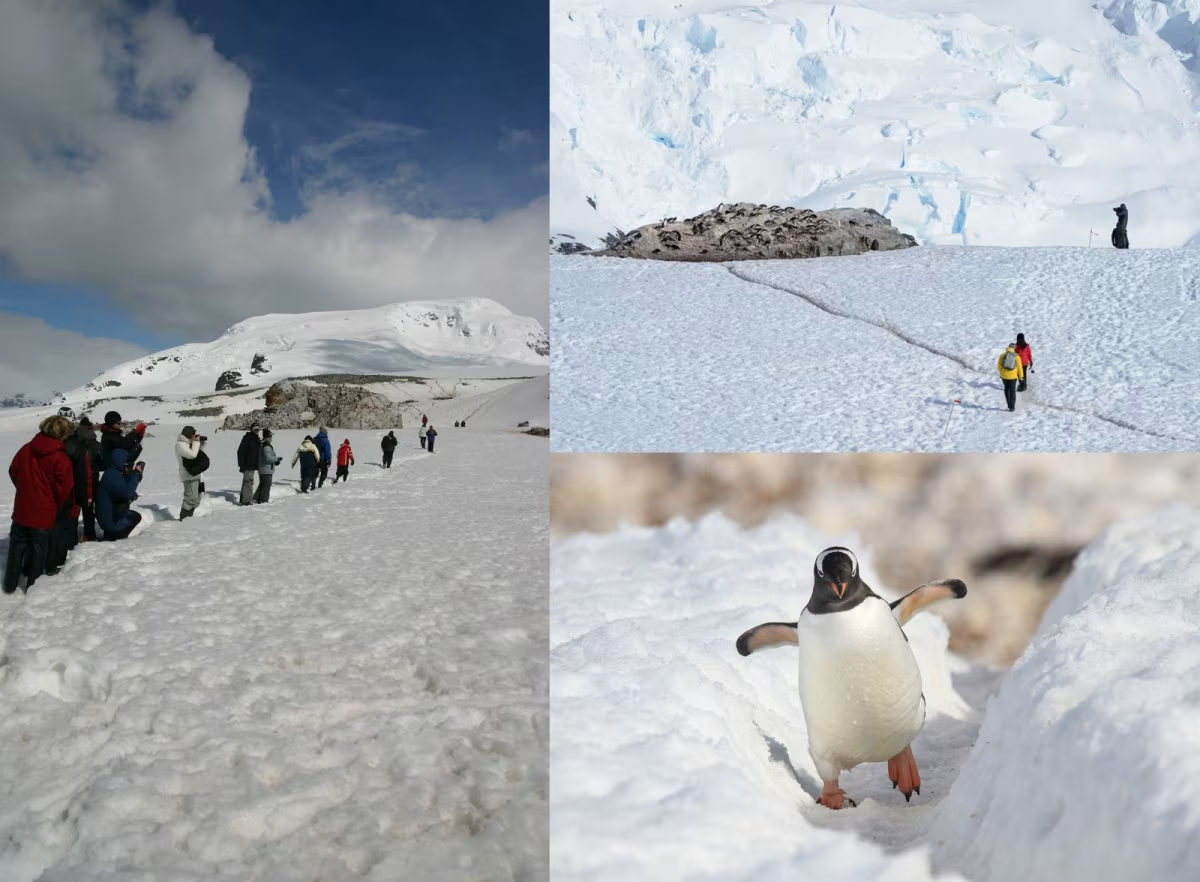
6. Adult and juvenile behaviour
Experienced adult penguins return to old nests, usually stick with former mates, and co-operate to bring food from the sea to their chicks. Younger parents change nest sites and partners more frequently, often failing to raise their chicks. Juveniles (often nonbreeding wanderers) return from sea to their natal rookery and try to imitate adult behaviour.
These young explorers are easily frightened. If they are disturbed, they explore elsewhere. The rookery where they were hatched will slowly decline, and no one will know it for years. Watch for these juveniles and give them extra space.
7. No place for heroics
What’s the best thing to do if you find an incubating bird buried on its nest after a blizzard? Leave it alone. Trying to help will frighten the bird causing the snow to cave in and the egg will be smashed.
8. Predators and scavengers
The same applies to predators and scavengers. It’s upsetting to see a helpless penguin chick being killed by a skua. But the skua has to feed its young. It will select the easiest prey: usually one that is starving and has been deserted by its parents.
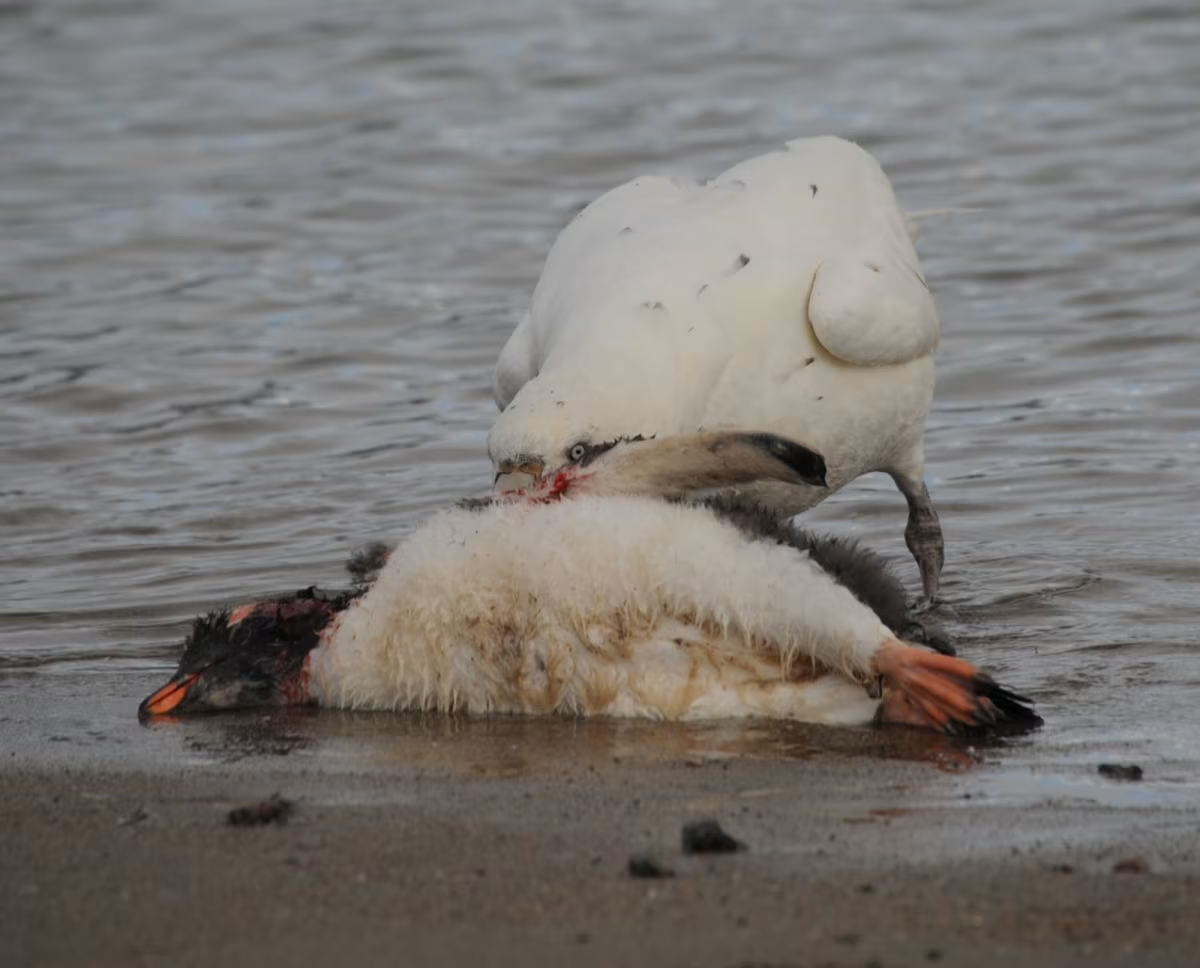
9. Feeding is not for the birds
Skuas, gulls, and sheathbill are easily attracted by human garbage or visitors tossing food. This gives them an undesirable advantage over other species, many of which they prey on. They should never be fed.
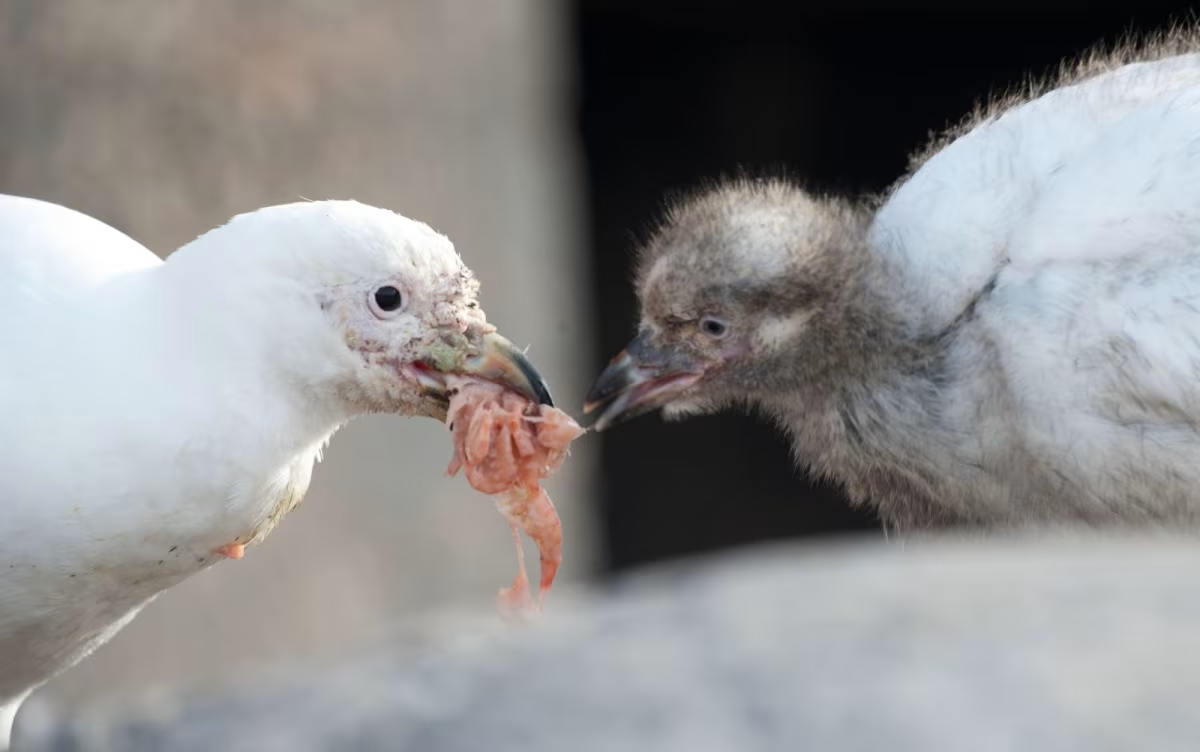
10. Trust is better than mistrust
When man first explored Antarctica the birds were amazingly tame. But they learned to fear and run away. Move very slowly among the birds and seals. Allow them to realize you are not a threat. Trust is better than mistrust.
11. Scientists are not beyond reproach
Scientists can unknowingly interfere with or damage other scientists’ research. Especially susceptible are long-term bird-banding and population studies in areas where stations are close to each other. Scientists are not beyond reproach. Tell them if you are concerned.
12. Watch for signs of disturbance
People must not violate the birds’ individual space. Stay at least the prescribed distances from rookeries. Watch for signs of disturbance. Penguins start moving their flippers back and forth when nervous. Back off if you see this behaviour.
If you approach a tern or gull nesting area, the birds may leave their nests and fly around crying their alarm. Back off until they settle again. If you don’t, you may crush their cryptically coloured eggs or be responsible for the chilling and destruction of the embryos in their thin-shelled eggs.
We’re just visitors
Antarctica’s harsh environment makes life tough for our feathered friends. If we want to ensure that they’re there for future generations of Antarctic cruises then we have to make sure that we do as little as possible to disturb the natural order. The birds’ Antarctic evolutions are precisely tuned and it can take very little to throw them out of whack. So when in doubt, caution is the best way to go.
